Warburg Professorship
-
2025
Claudia Mattos Avolese
Tufts University
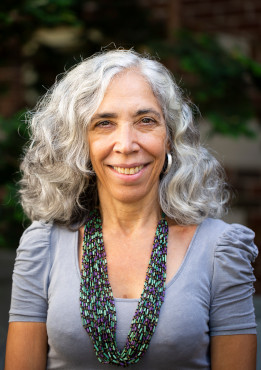
Claudia Mattos Avolese received a PhD in Art History from the Freie Universität Berlin, in 1992. She was a post-doctorate fellow at the University of Campinas from 1994 to 1999 and a fellow at the Courtauld Institute in 2001. In 2003 she was hired as professor for the History of Art at the University of Campinas in Brazil, where she taught until 2021 and where she still collaborates and advises students in the Art History Graduate Program. In 2023 Prof. Mattos Avolese accepted a position at Tufts University in the United States, where she is now based. Prof. Mattos Avolese was a scholar at the Getty Research Institute, Los Angeles (2012). She was the President of the Brazilian National Art History Committee (CBHA) from 2013 to 2016 and co-President of the International Art History Committee (CIHA), from 2022-2024, after organizing the 35th CIHA World Congress in São Paulo, Brazil in 2022. At the moment, she is an invited member of the CIHA Board and will return to the presidency in 2026. Her work has been funded by The Getty Foundation, The Terra Foundation for American Art, the Tisch Foundation, the Brazilian National Council for Scientific and Technological Development (CNPq), the São Paulo Research Foundation (FAPESP), among others. Prof. Mattos Avolese is the author of several books, and articles on Brazilian art from the nineteenth century to the contemporary, as well as on the history of art history. Her most recent research looks at Indigenous art in Brazil and its relation to the development of a new critical approach to Art History.
Lecture
Tuesday, July 1st, 2025, 7pm
»Serpents and Rituals at the Crossroads of Contemporary Indigenous Art in Brazil«Photo: Jandro Cisneros/Tufts University
Bibliography
(Selection)
Books
(ed.) Motion: Migrations. 35th World Congress CIHA, São Paulo: Vasto Editora, 2024, ebook: http://www.ciha.org/content/motion-migrations-proceedings-35th-world-congress-art-history
& Patrícia Meneses (eds.) Arte não-Europeia: conexões historiográficas a partir do Brasil, São Paulo: Estação Liberdade, 2020.
& Roberto Conduru (eds.) New Worlds: Frontiers, Inclusion, Utopias, São Paulo: Vasto Editora & Comité International de l’Histoire de l’Art, 2017, e-book: http://www.ciha.org/content/new-worlds-frontiers-inclusions-utopias-0
Lasar Segall 50 fotografias, São Paulo: Lasar Segall Museum, 2012.
Expressionismo e Judaísmo. O Período Alemão de Lasar Segall (1906-1923), São Paulo: Perspectiva, 2000.
& Cecilia H. Salles Oliveira (eds.) O Brado do Ipiranga, São Paulo: EDUSP, 1999. Revised second edition, forthcoming 2025.
Lasar Segall, São Paulo: EDUSP, 1996.
Articles and book chapters
»From Mountains to Mines: Art and the Flow of Energy in Nineteenth Century Rio de Janeiro« as part of the Dialogue: Art and Ecology in 19th Century Latin America, in: Latin America and Latinx Visual Culture (December, 2025).
»Fictions coloniales: autoréférentialité et activisme indigène dans les collages numériques de Denilson Baniwa«, in: Brésil(S) sciences humaines et sociales (forthcoming May, 2025).
»What happens when natives draw? Theodor Koch-Grünberg and the Beginnings of Global Art History«, in: Regarding the Unknown: Encounters of Art History and Anthropology from 1870 to 1970, eds. Joseph Imorde & Peter Probst, Los Angeles: Getty Publications, 2023.
»Nature and History in the Construction of Félix-Émile Taunay’s ›Guanabara Bay Seen from Snake Island‹«, in: Picturing the Americas. Landscape Painting from Tierra del Fuogo to the Arctic, eds. Peter Brownlee, Valéria Piccoli & Georgiana Uhlyarik, New Haven and London: Yale University Press, 2015, p. 28-33.
»Geography, Art Theory, and New Perspectives for an Inclusive Art History«, in: The Art Bulletin, New York, 96, 3, (October 2014), p. 259-264.
»Nouveaux horizons pour l'histoire de l'art au Brésil«, in: Perspective INHA, Paris 2013, vol. 2, p. 256-260.
»The Torchlight Visit: guiding the eye through late eighteenth and early nineteenth century antique sculpture galleries«, in: Res. Anthropology and Aesthetics, 49-50/2005 (2006), p. 124-136.Contact
Prof. Dr. Claudia Mattos Avolese
Warburg-Haus
Heilwigstr. 116
20249 Hamburg -
2024
Rafael Cardoso
Universidade do Estado do Rio de Janeiro
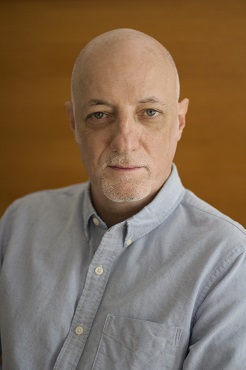
Foto: Patricia Breves
Rafael Cardoso is an art historian and writer. He received a PhD in art history from the Courtauld Institute of Art, London, in 1995. From 1996 to 2012, he taught at Pontifícia Universidade Católica do Rio de Janeiro and Universidade do Estado do Rio de Janeiro, where he continues to serve as a member of the postgraduate faculty in art history. Since 2012, he has been resident in Berlin, where he is a research associate with the Freie Universität Berlin (Lateinamerika-Institut). He has been a visiting scholar at the Getty Research Institute, Los Angeles, Institut National d’Histoire de l’Art, Paris, and Yale University, New Haven. His work has been funded by the Berliner Senat, the Brazilian Ministry of Education (Capes), the Brazilian National Council for Scientific and Technological Development (CNPq), the Brazilian National Library (FBN) and the S. Fischer Stiftung.
He has authored a great many books, essays and articles on Brazilian art and design, nineteenth and twentieth centuries, including Modernity in Black and White: Art and Image, Race and Identity in Brazil, 1890-1945 (Cambridge University Press, 2021). He has also curated major museum exhibitions including, most recently, O olhar germânico na gênese do Brasil (Museu Imperial, Petrópolis, 2022). He co-created and co-authored the television series Arte brasileira quadro a quadro (2018), now embarking on its second season in Brazil, based on his 2008 book. Apart from his academic writing, he has authored four works of fiction, including the historical novel O remanescente (Companhia das Letras, 2016), translated into German as Das Vermächtnis der Seidenraupen (S. Fischer, 2016).
He is a member of AICA-Deutschland, PEN-Berlin and Deutscher Verband für Kunstgeschichte. He also serves as a member of the Peter Weiss Stiftung and chairs the board of the Hugo Simon Stiftung.
Lecture
Tuesday, May 14th 2024, 7 pm
»Borrowed Forms, Singular Meanings: Rethinking 19th Century Art from Brazil«Bibliography
Selected publications
Books
Modernidade em preto e branco: Arte e imagem, raça e identidade no Brasil, 1890-1945 (Companhia das Letras, 2022)
O olhar germânico na gênese do Brasil (Museu Imperial, 2022)
Design para um mundo complexo (Cosac Naify, 2012)
Impresso no Brasil, 1808-1930: Destaques da história gráfica no acervo da Biblioteca Nacional (Verso Brasil, 2009)
A arte brasileira em 25 quadros (1790-1930) (Record, 2008)
O design brasileiro antes do design: Aspectos da história gráfica, 1870-1960 (Cosac Naify, 2005)
Scholarly articles
»Antropofagia, primitivism and anti-primitivism«, in: Joana Cunha Leal & Mariana Pinto dos Santos, eds., The Primitivist Imaginary in Iberian and Transatlantic Modernisms (New York: Routledge, 2024)
»Race and the Latin American Avant-gardes, 1920s-1930s« [co-authored with Alejandro de la Fuente], in: David Bindman, Alejandro de la Fuente & Henry Louis Gates, Jr., eds., The Image of the Black in Latin American and Caribbean Art. Book 2: The Modern World (Cambridge: Harvard University Press, 2024)
»A reinvenção da Semana e o mito da descoberta do Brasil«, Estudos Avançados (USP), 36/104 (2022)
»White Skins, Black Masks: Antropofagia and the Reversal of Primitivism«, in: Uwe Fleckner & Elena Tolstichin, eds., Das verirrte Kunstwerk: Bedeutung, Funktion und Manipulation von Bilderfahrzeugen in der Diaspora (Berlin: De Gruyter, 2019)
»Forging the Myth of Brazilian Modernism«, in: Larry Silver & Kevin Terraciano, eds., Canons and Values: Ancient to Modern (Los Angeles: Getty Publications, 2019)
»The Problem of Race in Brazilian Painting, c.1850-1920«, Art History, 38 (June 2015)
Contact
Prof. Dr. Rafael Cardoso
Warburg-Haus
Heilwigstr. 116
20249 Hamburg -
2023
Christopher S. Wood
New York University
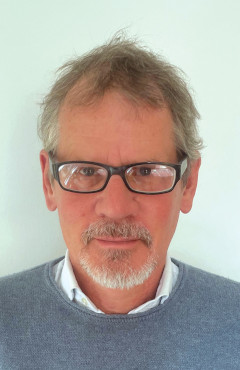
Christopher S. Wood is a professor in the Department of German, New York University. From 1992 until 2014 he taught in the Department of History of Art at Yale University. At Harvard University he was a Jacob Wendell Scholar and a Junior Fellow of the Harvard Society of Fellows. In 2002 he was awarded a John Simon Guggenheim Fellowship and a NEH Rome Prize Fellowship to the American Academy in Rome. In fall 2004 he was Ellen Maria Gorrissen Fellow at the American Academy in Berlin. In 2011-12 he was a Member of the School for Historical Studies of the Institute for Advanced Study, Princeton; and a Senior Fellow at the Internationales Forschungszentrum Kulturwissenschaften, Vienna. He is the author of The Embedded Portrait: Giotto, Giottino, Angelico (forthcoming, Fall 2023), A History of Art History (2019), Anachronic Renaissance (2010) (with Alexander Nagel), Forgery, Replica, Fiction: Temporalities of German Renaissance Art (2008), and Albrecht Altdorfer and the Origins of Landscape (1993). Wood is a member of the American Academy of Arts and Sciences. In 2018, he was a visiting professor at Villa I Tatti, the Harvard University Center for Italian Renaissance Studies. In 2023-24 he will be a fellow at the Wissenschaftskolleg zu Berlin.
Christopher S. Wood, is Aby-Warburg-Professor at the Warburg-Haus in 2023, as the Corona pandemic since 2020 previously prevented his stay.
LECTURE
Tuesday, July 4th, 2023, 7 pm
»Albrecht Altdorfer unter den Marketendern: Formen und Wanderungen des Kriegsvolks«Contact
Prof. Dr. Christopher S. Wood
Warburg-Haus
Heilwigstr. 116
20249 Hamburg -
2023
Barbara Baert
KU Leuven
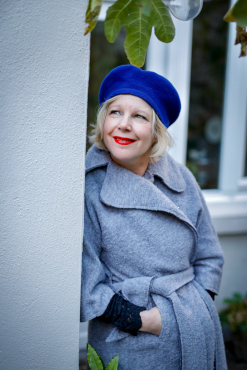
Barbara Baert (1967) is Professor in Medieval Art, Iconology, and Historiography at KU Leuven. Her work links knowledge and questions from the history of ideas, cultural anthropology, and philosophy, and shows great sensitivity to cultural archetypes and their symptoms in the visual arts. Her work has been honored with several awards, among which the prestigious Francqui Prize for Human Sciences in 2016. She was invited as a guest professor at numerous universities in Europe, Japan, and the United States. Barbara Baert was a fellow at the Internationales Kolleg für Kulturforschung und Medienphilosophie (IKKM) of the Weimar Bauhaus Universität (2015), the Istituto di Studi Avanzati of the Università di Bologna (2018), the Institute for Advanced Study in Princeton (2019), and the Center of Excellence BildEvidenz of the Freie Universität Berlin (2020). In 2021 she was the holder of the James Loeb Lecture at ZIKG in Munich. Barbara Baert is the founder and editor-in-chief of two academic series at Peeters Publishers, Studies in Iconology and Art & Religion.
Lecture
Tuesday, May 9th 2023, 7 pm
»Rocks and Tears. Niobe’s Fate as Dynamics of Form«Bibliography
(Selection)
Books
Looking Into the Rain. Magic-Moisture-Medium. Berlin: De Gruyter, 2021.
From Kairos to Occasio along Fortuna. Text / Image / Afterlife. On the Antique Critical Moment, a Grisaille in Mantua (School of Mantegna, 1495-1510) and the Fortunes of Aby Warburg (1866-1929). Turnhout: Brepols & Harvey Miller, 2021.
The Gaze from Above. Reflections on Cosmic Eyes in Visual Culture. Art & Religion, 11. Leuven/ Walpole: Peeters Publishers, 2021.
Signed PAN. Erwin Panofsky’s (1892-1968) »The History of Art as a Humanistic Discipline« (Princeton, 1938). Studies in Iconology, 18. Leuven/ Walpole: 2020.
About Sieves and Sieving. Motif, Symbol, Technique, Paradigm, Berlin/ Boston: De Gruyter, 2019.
Interruptions & Transitions. Essays on the Senses in Medieval and early Modern Visual Culture. Art and Material Culture in Medieval and Renaissance Europe, 14. Leiden: Brill, 2019.
Fragments. Studies in Iconology, 14. Leuven/ Walpole/ Paris/ Bristol: Peeters Publishers, 2018. (This 400 pages book, consists of 110 lemmata from Baert’s oeuvre, 111 color images, an indices nominum & subjects.)
Pneuma and the Visual Arts in the Middle Ages and Early Modernity. Art & Religion, 5. Leuven/Walpole: Peeters Publishers, 2016.Translated into Japanese with Sangensha publishers, 2022: 三元社ホームページ (sangensha.co.jp)
(ed.) The Woman with the Blood Flow (Mark 5:24-34). Narrative, Iconic, and Anthropological Spaces. Art & Religion, 2. Leuven/ Walpole: Peeters Publishers, 2014.
Caput Johannis in Disco. {Essay on a Man’s Head}. Visualising the Middle Ages, 8. Leiden: Brill, 2012.
& Rudy, Kathryn M. (eds.) Weaving, Veiling, and Dressing. Textiles and their metaphors in the late Middle Ages. Medieval Church Studies. Turnhout: Brepols, 2007.
A Heritage of Holy Wood. The Legend of the True Cross in Text and Image. Cultures, Beliefs and Traditions. Medieval and Early Modern Peoples, 22. Leiden: Brill, 2004.
Articles and book chapters
»Eine Antwort auf Echo. Jenseits von Mimesis oder Auflösung als skopisches Ordnungsmuster (mit besondererAufemerksamkeit für Camouflage)«, in: Challenging the Iconic Turn. Positionen – Methoden – Perspektiven, eds. Dominic Delarue and Christoph Wagner. Berlin: De Gruyter, 2023, p. 5-26.
»The New Lamb and the Iconic Gaze«, in: Iconographica. Studies in the History of Images, 20 (2021): p. 102-114.
»Oculi! Danaë and the Uncanny Space«, in: Engramma. La tradizione classica nella memoria occidentale, 178 (2020-2021).
»Trompe l’oeil und Raum der Intimität. Die Eingefassten Gärten in den Niederlanden neu denken (15. Jahrhundert und später)«, in: Exzessive Mimesis. Trompe l’oeils und andere Überschreitungen der ästhetischen Grenze, eds. Helga Lutz & Bernhard Siegert, edition Metzel, 2020: p. 163-196.
»The Spinning Head. Round Forms and the Phenomenon of the Johannesschüssel«, in: Runde Formationen. Mediale Aspekte des Zirkulären, eds. Joseph Imorde & Andreas Zeising, (Bild- und Kunstwissenschaften, 10), Siegen, 2019, p. 45-58.
»He or she who glimpses, desires, is wounded. A dialogue in the interspace between Aby Warburg and Georges Didi-Huberman«, in: Angelaki. Journal of the theoretical humanities, 23, 4 (2018): p. 47-79.
»Stains. Trace-Cloth-Symptom«, in: Textile. Journal of Cloth and Culture, 15, 3 (2017): p. 270-291.
»Revisiting Seth in the Legend of the Wood of the Cross: Interdisciplinary Perspectives between Text and Image«,: in The Embroidered Bible: Studies in Biblical Apocrypha and Pseudepigrapha in Honour of Michael E. Stone, (Studia in Veteris Testamenti Pseudepigrapha). eds. Lorenzo DiTommaso, Matthias Henze & William Adler. Leiden, 2017, p. 139-162.
»Vision, piété et décapitation. Andrea Solario (env. 1465-1524). La tête de Saint-Jean Baptiste revisitée«, in: Archivio italiano per la storia della pietà (Immagine, meditazione, visione, ed. Lauro Magnani), 29 (2016): p. 257-278.
»Aby Warburgs Nymphen und Schmetterlinge als Affekte«, in: Ars – Visus – Affectus. Visuelle Kulturen des Affektiven in der Frühen Neuzeit. eds. Anna Pawlak, Lars Zieke & Isabella Augart, Berlin-Boston, 2016, p. 18-37.
»An Odour, a Taste, a Touch. Impossible to Describe. Noli me tangere and the Senses, in Religion and the Senses«, in: Early Modern Europe, (Intersections. Interdisciplinary Studies in Early Modern Culture, 26), eds. Wietse de Boer & Christine Goettler. Leiden, 2013, p. 111-151.
»Wenn ich nur sein Kleid möchte anrühren. Der Frau mit dem Blutfluss in der frühmittelalterlichen Ikonographie (Mark 5:24b-34parr)«, in: Zeitschrift für Religions- und Geistesgeschichte, 62, 1 (2010): p. 52-76.
»The Wood, The Water, and the Foot, or how the Queen of Sheba met up with the True Cross. With emphasis on the Northern European Iconography«, in: Mitteilungen für Anthropologie und Religionsgeschichte, 16 (2004): p. 217-278.Contact
Prof. Dr. Barbara Baert
Warburg-Haus
Heilwigstr. 116
20249 Hamburg -
2022
Wolfram Pichler
Universität Wien
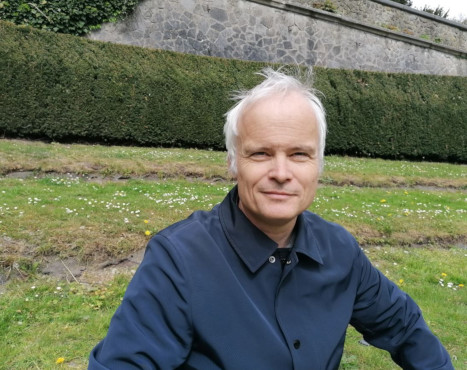
Wolfram Pichler is a.o. Professor of Art History at the University of Vienna. He studied art history and philosophy at the Universities of Munich and Vienna, where he received his doctorate with a study on painters’ make-up in 1999 and gained his venia legendi with art historical contributions to the theory of images in 2015. In 2000 he was a visiting fellow at Harvard, 2003/4 postdoctoral fellow at the Kunsthistorisches Institut in Florence, 2012/13 senior fellow at the IKKM in Weimar, 2013 guest professor at the École des Hautes Études en Sciences Sociales in Paris as well as Getty Scholar at the Getty Research Institute in Los Angeles, 2017 Mercator fellow of the DFG. His historical and theoretical works stand in the tradition of the ›iconic turn‹ art history took towards the end of the last century, especially in Germany and France. His publications concern primarily European painting of the early modern und modern periods, the theory and history of drawing, and the theory of images.
Lecture
Tuesday, June 14th 2022, 7 pm
»Von Natur aus unberührbar? Magrittes ›images peintes‹ und die Geschichte der gemalten Gegenstände«Bibliography
(Selection)
»Bildschein und Begriffserfindung«, in: Johannes Grave, Jorin Coris Heyder and Britta Hochkirchen (Eds.): Vor dem Blick. Materiale, mediale und diskursive Zurichtungen des Betrachtens von Bildern. Bielefeld: Transcript, 2022, pp. 277–306.
»How to Make Images Real«, in: Krešimir Purgar (Ed.), The Pelgrave Handbook of Image Studies. Cham 2021, pp. 547–556.
»Vehikel, Inhalt, Referent: Grundbegriffe einer Bildtheorie«, in: Sergej Seitz, Anke Graneß and Georg Stenger (Eds.): Facetten gegenwärtiger Bildtheorie. Interkulturelle und interdisziplinäre Perspektiven. Wiesbaden: Springer, 2018, pp. 39–54.
»Francisco de Goya: Malerei als Schminke (1794)«, in: Romana Sammern and Julia Saviello (Eds.): Schönheit – Der Körper als Kunstprodukt. Kommentierte Quellentexte von Cicero bis Goya. Berlin: Reimer, 2019 (published 2018), pp. 357-363.
Introduction to »Kunsttheorie und -geschichte« and numerous single entries in: Sabine Mainberger and Esther Ramharter (Eds.): Linienwissen und Liniendenken. Berlin/Boston: de Gruyter, 2017, pp. 282–311 (with Sabine Mainberger).
»Schwarze Lichter? Bildlogische Operationen bei Michelangelo und Matisse«, in: Zeitschrift für Medien- und Kulturforschung 6, Nr. 1 (2015), pp. 45–62.
Bildtheorie zur Einführung (with Ralph Ubl). Hamburg: Junius 2014.
»Ring und Verschlingung: Gedanken über einen ›corpo nato della prospettiva di Leonardo Vinci‹«, in: Marzia Faietti and Gerhard Wolf (Eds.): LINEA II - Tangenze, Intrecci, Nodi, Labirinti Strutture e simbologie della linea tra antico e contemporaneo. LINEA II - Tangents, interlaces, knots, labyrinths. Structure and meaning of lines from antiquity to the contemporary period, Florence: Giunti 2012, pp. 30–51.
»Zur Kunstgeschichte des Bildfeldes«, in: Gottfried Boehm and Matteo Burioni (Eds.), Der Grund. Das Feld des Sichtbaren, Munich (Fink) 2012, pp. 440-472.
Ed., with Richard Heinrich, Elisabeth Nemeth and David Wagner, Image and Imaging in Philosophy Science, and the Arts, 2 vols. (= Proceedings of the 33d International Ludwig Wittgenstein-Symposium in Kirchberg, 2010). Frankfurt/Paris/Lancaster/New Brunswick: Ontos, 2011.
»Afterword. Configurations of the Image«, in: Jim Elkins and Maja Naef (Eds.), What is an Image? University Park (Pennsylvania) 2011, pp. 239–270.
»Topologie des Bildes. Im Plural und im Singular«, in: David Ganz and Felix Thürlemann (Eds.): Das Bild im Plural. Mehrteilige Bildformen zwischen Mittelalter und Gegenwart. Berlin 2010, pp. 111-132.
Ed., with Ralph Ubl, Topologie. Falten, Knoten, Netze, Stülpungen in Kunst und Theorie. Vienna: Turia und Kant, 2009.
Ed., with Friedrich Teja Bach, Öffnungen: zur Theorie und Geschichte der Zeichnung. Munich: Fink, 2009.
»Goyas Tele-Graphie«, in: Inka Mülder-Bach, Gerhard Neumann (Eds.), Räume der Romantik. Würzburg: Königshausen und Neumann 2007, pp. 239-276.
»Il dubbio e il doppio: le evidenze in Caravaggio«. In: Sybille Ebert-Schifferer, Julian Kliemann, Valeska von Rosen and Lothar Sickel (Eds.): Caravaggio e il suo ambiente. Ricerche e interpretazioni. Milan 2007, pp. 9-33.
Ed., with Marianne Koos, Werner Rappl and Gudrun Swoboda, Aby M. Warburg. Mnemosyne. Zur Ausstellung im Kunsthaus Hamburg. Hamburg/Munich: Dölling und Galitz, 1994. 2nd, enlarged edition 2006.
»Vor dem ersten Strich. Dispositive der modernen und vormodernen Zeichnung« (with Ralph Ubl), in: Werner Busch, Oliver Jehle and Carolin Meister (Eds.), Randgänge der Zeichnung, München: Fink 2006, pp. 231-255.
»Metamorphosen des Flussgottes und der Nymphe: Aby Warburgs Denk-Haltungen und die Psychoanalyse« (with Gudrun Swoboda and Werner Rappl), in: Lydia Marinelli (Eds.), Die Couch. Vom Denken im Liegen (exhibition catalogue, Sigmund Freud-Museum, Vienna), München/Berlin/London/New York: Prestel 2006, pp. 161-186.
»Gli spazi di Warburg. Topografie storico-culturali, autobiografiche e mediali nell'Atlante Mnemosyne« (with Gudrun Swoboda), in: Quaderni Warburg Italia 1 (2003), pp. 93-180.Contact
Ao. Prof. Dr. Wolfram Pichler
Warburg-Haus
Heilwigstr. 116
20249 Hamburg
-
2019
Barbara Schellewald
University of Basel
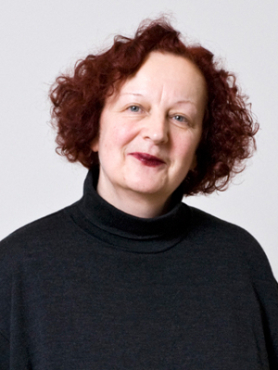
Prof. Dr. Barbara Schellewald (*1952, Lauchhammer) holds the chair for older art history at the University of Basel. She studied art history, classical and Biblical archeology, Italian studies and South Asian studies at the universities of Heidelberg and Bonn. She completed her PhD in 1982 at the University of Bonn with a study of the architecture of the church of St. Sophia in Ohrid (North Macedonia). From 1982 to 1984 she worked at Philipps-Universität Marburg and from 1984 to 1990 she was assistant lecturer at the University of Bonn. After a longer-term period in which she substituted for a professor at the Ruhr-Universität Bochum she was offered a chair at Leipzig University in 1993, where she taught before returning to the University of Bonn in 1994, taking the chair for medieval art history, with a special focus on the history of Byzantine art. Her habilitation thesis (1994) was entitled Die Konstitution byzantinischer Bildprogramme. Strukturen – Liturgie – Gedächtnis (The configuration of Byzantine visual programmes. Structures – Liturgy – Memory).
From 2008 to 2017 she was a board member of the Swiss NCCR National Centre of Competence in Research Eikones (NCCR »Iconic Criticism – The Power and Meaning of Images« of the Swiss National Science Foundation), in its last period with the module Revealing and Concealing. Methods of the image in the pre-modern period; from 2014 until 2017 she was an active contributor to the research project Digital Materiality funded by the Swiss National Science Foundation.
Among Barbara Schellewald’s current research areas are: Byzantine image culture and medieval image theories, the relations between the Middle Ages and modernity, especially in modern receptions of the medieval, processes of cultural exchanges in the Mediterranean and the Hanse area, the history of science, especially art history during National Socialism, processes and practices of revealing and concealing in the pre-modern period, and the materiality of medieval artefacts and their contemporary perception.
Lecture
Monday, June 3rd 2019, 7 pm
»Wahrnehmungsoptionen von Artefakten im Mittelalter im Licht moderner Reproduktionstechniken«Bibliography
Her numerous varied publications include:
Enthüllen und Verbergen in der Vormoderne. Revealing and concealing in the pre-modern period (Ed., with H. Hofmann, S. Schweinfurth & G. Wildgruber) (forthcoming 2019).
Clothing Sacred Scriptures. Book Art and Book Religion in Christian, Islamic, and Jewish Cultures (Ed., with D. Ganz), Berlin & Boston 2019.
Bild und Text im Mittelalter (Ed., with K. Krause), Cologne 2011.
Blau. Materialität und Licht. Zum Verhältnis von Wandmalerei und Mosaik, in: U. Heinrichs (Ed.), Neue Forschungen zur Wandmalerei, Paderborn 2019.
Temporality versus Transcendence: Mosaic as a Medium beyond Perspective, in: C. Kiening & M. Stercken (Ed.), Temporality and Mediality in Late Medieval and Early Modern Culture, Turnhout 2018, pp. 15-39.
Transferprozesse zwischen Ost und West – Bildkonzepte und -modelle, in: F. Daim, D. Heher & C. Rapp (Ed.), Bilder und Dinge: Studien zur Ausstellung »Byzanz & der Westen. 1000 vergessene Jahre«, Mainz 2018, pp. 59-71.
Out of the Blue – Die Erscheinung des Göttlichen. Der Einsatz von Lapislazuli im Mittelalter, in: N. Adamowsky, N. Gess, M. Schnyder, H. Marchal, & J. Bartuschat (Ed.), Archäologie der Spezialeffekte, Paderborn 2018, pp. 217-238.
Transformationen – Die Transfigurationsikone aus Zarzma und die an und mit ihr praktizierten Wahrnehmungsstrategien, in: M. Bacci, T. Kaffenberger & M. Studer-Karlen (Ed.), Cultural Interactions in Medieval Georgia, Wiesbaden 2018, pp. 169-188.
Gold, Licht und das Potenzial des Mosaiks, in: Zeitschrift für Kunstgeschichte 79/2016, pp. 461-480.
Transformation and Animation. Light and Mosaic in St. Catherine’s Monastery on Mount Sinai, in: D. Mondini & V. Ivanovici (Ed.), Manipolare la luce in epoca premoderna. Aspetti architettonici, artistici e filosofici. Manipulating Light in Premodern Times. Architectural, Artistic, and Philosophical Aspects, Mendrisio 2014, pp. 236-251.
Mosaik als Medium der Moderne, in: B. Borkopp-Restle & B. Welzel (Ed.), »Eines der wichtigsten Monumente unserer Zeit überhaupt.« Das Krematorium von Peter Behrens in Hagen, Essen 2014, pp. 171 -190.
Kunstgeschichte im »Dritten Reich«: Theorien, Methoden, Praktiken (Ed., with R. Heftrig & O. Peters), Berlin 2008.
Frauen in der frühen Neuzeit: Lebensentwürfe in Kunst und Literatur (Ed., with A.-M. Bonnet), Cologne 2004.
Contact
Prof. Dr. Barbara Schellewald
Warburg-Haus
Heilwigstr. 116
20249 Hamburg
Tel. +49 40 4605538 -
2018
Alexander Honold
University of Basel
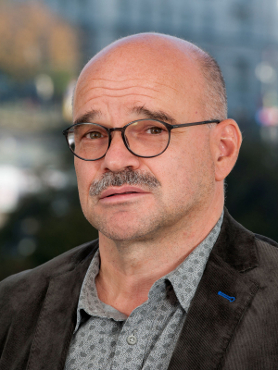
Prof. Dr. Alexander Honold (* 1962, Valdivia/Chile) is Professor of modern German literary studies at the University of Basel since 2004. He studied German and Comparative Literature, Philosophy and Latin American Studies in Munich and Berlin and completed his PhD in 1994 at Freie Universität Berlin with a thesis on Robert Musil and World War I. His Habilitation was completed in 2002 with a treatise on astronomy in the works of Friedrich Hölderlin. From 1991 to 1996 he was a research associate in modern German literature at the Department of German Studies at FU Berlin, and besides was a lecturer in Latin American Studies from 1991 to 1993 at FU Berlin and from 1993-2002 a lecturer at Humboldt-Universität Berlin. From 1997 to 2000 he was a research associate in the DFG (German Research Association) research project Kultur- und Literaturgeschichte des Fremden (Cultural and literary history of the foreign), from 2000 to 2002 he held a habilitation fellowship from the DFG and from 2003 to 2004 substituted for a professor at the Chair for German Literature and General Literary Studies (Prof. G. von Graevenitz) at the University of Konstanz.
Alexander Honold has taught, amongst others, at the Freie Universität Berlin, at Huboldt-Universität Berlin, at the University of Konstanz and the University of Basel. He had research stays funded by the DAAD (German Academic Exchange Service) at New York University (April-May 1997) and Stanford University (April 1998) and was a Fellow at the Kulturwissenschaftliches Institut (KWI) Essen (October 1998-May 1999), a Fellow at the Freiburg Institute for Advanced Studies (FRIAS) of the University of Freiburg (January-June 2013), Senior Fellow at the IFK International Research Center for Cultural Studies, Vienna, University of Art and Design Linz (October 2017-January 2018), as well as Max Kade Distinguished Visiting Professor at the University of California, Santa Barbara, USA (January-March 2018). He holds the 2018 Warburg Professorship of the Aby Warburg Foundation and resides at the Warburg-Haus Hamburg from April to July 2018.
His research areas include the study of narration (the history of genres, forms and media of narration), the cultural theory of classical modernism, travel literature, intercultural and postcolonial literary studies, the semantics of landscape and cultural topography, texts and authors from Switzerland and Austria, literary theatre and play (in and since the Goethe era) as well as literature and music (cooperation between, transfer of forms and mutual dealings with each other).
Lecture
Monday, July 2nd 2018, 7 pm
“Rausch, Taumel, Schicksalsergebenheit: Im Planetarium des Krieges”Bibliography
Alexander Honold has published numerous books, articles in journals and newspapers, as well as literary criticism.
His latest publications include:
Die Tugenden und die Laster. Gottfried Keller, Die Leute von Seldwyla. Basel: Schwabe 2018.
Der Erd-Erzähler. Peter Handkes Prosa der Orte, Räume und Landschaften. Stuttgart: Metzler, 2017.
Handbuch Literatur und Musik (Ed., with Nicola Gess). Berlin, Boston: De Gruyter, 2017.
Reiseliteratur der Moderne und Postmoderne (Ed., with Michaela Holdenried and Stefan Hermes). Berlin: Erich Schmidt 2017.
Goethe als Literatur-Figur (Ed., with Edith Anna Kunz and Hans-Jürgen Schrader). Göttingen: Wallstein 2016.
Einsatz der Dichtung. Literatur im Zeichen des Ersten Weltkriegs. Berlin: Vorwerk 8, 2015.
Die Zeit schreiben. Jahreszeiten, Uhren und Kalender als Taktgeber der Literatur. Basel: Schwabe 2013.Contact
Prof. Dr. Alexander Honold
Warburg-Haus
Heilwigstr. 116
20249 Hamburg
Tel. +49 40 4605538 -
2017
Jörg Jochen Berns
Philipps-Universität Marburg
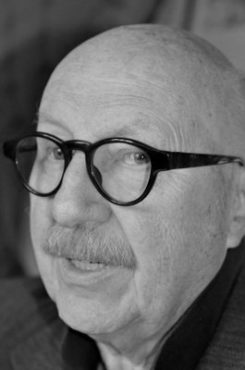
Prof. Emeritus Dr. Jörg Jochen Berns (*1938, Frankfurt on the Main) studied German literary studies, Philosophy and History at the universities of Frankfurt on the Main, Freiburg im Breisgau and Marburg. He completed his PhD in 1964 in Modern German Literature with a thesis on the baroque novelist Johann Beer. From 1964 to 1968 he was the recipient of a habilitation fellowship of the DFG (German Research Association). He worked at the Institute for Modern German Literature at Universität Marburg as a scientific assistant in 1968/69 and as akademischer Rat (tenured research assistant) from 1970-1972. Upon completion of his Habilitation in 1972 with a study on the philosopher, linguist, dramatist and devotional poet Justus Georg Schottelius he was appointed university professor at Universität Marburg the same year. In 1987/88 he was a Visiting Professor at Università degli Studi di Trento. Jörg Jochen Berns retired in October 2001. His main research and teaching areas are: The science history of German studies, courtly culture of the early modern era, the history of mnemonics, the history of early modern mythography and the history of German iconoclasm.
Lecture
Wednesday, May 17, 2017, 7 pm
„Der malende Teufel. Zum ästhetischen Potential des mille artifex“
Lecture on Lecture2Go, Universität HamburgBibliography
Von Strittigkeit der Bilder. Texte des deutschen Bildstreits im 16. Jahrhundert. 2 Bde. (Frühe Neuzeit, Bd. 184) Berlin: de Gruyter, 2014.
Die Jagd auf die Nymphe Echo. Zur Technisierung der Wahrnehmung in der Frühen Neuzeit (Presse und Geschichte, Neue Beiträge, Bd. 53). Bremen 2011.
Himmelsmaschinen / Höllenmaschinen. Zur Technologie der Ewigkeit. Berlin: Semele, 2007.
Gedächtnislehren und Gedächtniskünste in Antike und Frühmittelalter [5. Jahrhundert v. Chr. bis 9. Jahrhundert n. Chr.] Dokumentsammlung mit Übersetzung, Kommentar und Nachwort. Ed. by Jörg Jochen Berns, with the collaboration of Ralf Georg Czapla and Stefanie Arend. Tübingen: Max Niemeyer Verlag, 2003 (Documenta Mnemonica, Bd. I.1. Frühe Neuzeit, Bd. 79).
Film vor dem Film. Bewegende und bewegliche Bilder als Mittel der Imaginations-steuerung in Mittelalter und Früher Neuzeit. Marburg: Jonas Verlag, 2000.
Die Herkunft des Automobils aus Himmelstrionfo und Höllenmaschine. Berlin: Wagenbach 1996 (Kleine kulturwissenschaftliche Bibliothek, Bd. 54). [French translation by Pierre Béhar, Paris 2003; Romanian translation by Oana Bauer]
[Co-editor and co-author:] Zeremoniell als höfische Ästhetik in Spätmittelalter und Früher Neuzeit. Tübingen 1995 (= Frühe Neuzeit, Bd.25).
Contact
Prof. Dr. Jörg Jochen Berns
Warburg-Haus
Heilwigstr. 116
20249 Hamburg
Tel. +49 40 4605538 -
2016
Peter Krieger
Universidad Nacional Autónoma de México
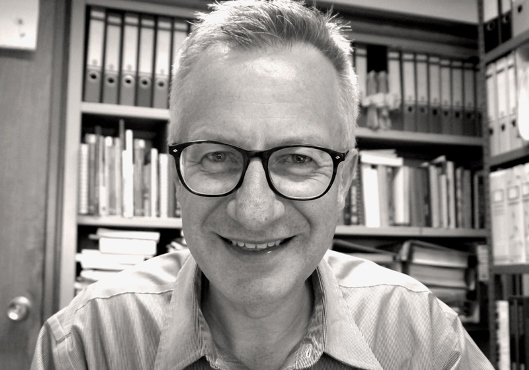
Prof. Dr. Peter Krieger, 1996 PhD University of Hamburg (Graduate Program Political Iconography), since 1998 Research-Professor at the Institute for Aesthetic Research at the Mexican National University (Instituto de Investigaciones Estéticas, UNAM); 2004-2012 Vice-President of the International Committee of Art History (CIHA/UNESCO); 2007-2014 academic collaborator at the project ‘Transcultural and Transhistoric Efficiencies of the Baroque Paradigm’, University of Western Ontario, London/ON; 2010-2014 member of the scientific board of the Ministry of urban development of Mexico City (Comisión de Publicidad Exterior, Seduvi / GDF); concept and organization of conferences, e.g. about the relationship between city-scapes and nature; September 2016 chair of the section “Landscape and Spectacle” of the 34th World Congress of Art History (CIHA) in Beijing, China. 2016 Aby Warburg Visiting Professor at the Warburg-Haus, Hamburg.
Research and Publications include the image and history of Cities and landscape in the 20th and 21st century; aesthetics and ecology of Mega-Cities; Political Iconography of City-Scapes and Architecture; Art and Sciences.
Peter Kriegers research project at the Warburg-Haus is the political Iconography of the contemporary landscape.
Lecture
Tuesday, 31. May 2016, 19.00
„Politische Ikonografie und Ökologie der Mega-Stadt-Landschaft“
Lecture on Lecture2go, Universität Hamburg
Bibliography
Transformaciones del paisaje urbano en México. Representación y registro visual. Madrid: El Viso / México: MUNAL, 2012 [rezensiert im Journal für Kunstgeschichte / Journal of Art History 18, 1/2014, pp.94-102].
“Body, Building, City and Environment. Facets of Contemporary political Iconography in the Mexican Megalopolis” en Udo J. Hebel / Christoph Wagner (eds.) Pictorial Cultures and Political Iconographies. Berlin, Boston: De Gruyter 2011, pp.401-428.
“Colgado en el escenario distópico de la ciudad modernista. El largo alcance del terror visual vanguardista hasta el 9-11” en Renato González Mello / Anthony Stanton (eds.) Vanguardia en México. 1915-1940. México: Munal/INBA 2013, pp.148-157.
“The charge of Emptiness at the Constitution’s Square in Mexico City” in Ulrich G. Grossmann / Petra Krutisch (eds.) The Challenge of the Object. Die Herausforderung des Objekts. 33Rd Congress of the International Committee of the History of Art. 33. Internationaler Kunsthistoriker-Kongress. Nürnberg, 15.-20. Juli 2012 Congress Proceedings - Part 3, Nuremberg: Germanisches Nationalmuseum, 2014,, pp.1114-1117.
“Arquitectura política del México posrevolucionario institucional en 1964 – el caso de la Secretaría de Relaciones Exteriores en Tlatelolco” in Museo de Arte Moderno (ed.) Pedro Ramírez Vázquez inédito y funcional. México: MAM/INBA, 2014, pp.212-240.
"Germany Reconstructed? Destroyed Postwar City-Scapes as 'Witnesses' for Collective Memories." in Arte y Violencia. (XVIII Coloquio Internacional de Historia del Arte), ed. Arturo Pascual, México: Instituto de Investigaciones Estéticas, UNAM, 1995, pp.31-58.
"Las posibilidades abiertas de Aby Warburg." in (In)Disciplinas: estética e historia del arte en el cruze de los discursos. (XXII Coloquio Internacional de Historia del Arte.), ed. Lucero Enriquez, México: Instituto de Investigaciones Estéticas, UNAM, 1999, pp.261-281.
“El hábitat contemporáneo como locus terribilis. Las experiencias de Barack Obama” en La estética del mal: conceptos y representaciones (coloquio internacional de historia del arte), ed. Erik Velazquez García, México: Instituto de Investigaciones Estéticas, UNAM, 2013, pp.425-434.
“Belagerung” in Uwe Fleckner / Martin Warnke / Hendrik Ziegler (eds.) Handbuch Politische Ikonographie. München: Beck, 2011, Vol I: Abdankung bis Huldigung, pp.136-143.
“In memoriam Nelson Mandela (1918 - 2013) – aprendizaje de la celda” in Anales del Instituto de Investigaciones Estéticas, Núm. 105 (2014), pp.257-265.Contact
Prof. Dr. Peter Krieger
Warburg-Haus
Heilwigstr. 116
20249 Hamburg
Tel.: +49 40 4605538 -
2015
Shai-Shu Tzeng
National Taiwan Normal University, Teipei
After receiving her doctorate in 1993 from the Ludwig-Maximilians-Universität Munich, Prof. Shai-Shu Tzeng taught at the Department of Fine Art, National Taiwan Normal University (NTNU) in Taipei. From 2000 to 2005, she was director of the project ‘Western Art History Studies’, an inter-university initiative funded by the National Science Council of Taiwan. She went on to become the director of the Centre Culturel de Taiwan in Paris in 2005 and 2006, and in 2007 founded the Graduate Institute of Art History at NTNU, which she managed until the summer of 2014.
For her current research at the Warburg Haus, Shai-Shu Tzeng is examining paintings, rendered on leather wall hangings, of the towns of Formosa (today’s Taiwan) from the 17th century. The project ties in with earlier research undertaken by Tzeng on the portrayal of towns in landscape painting and is being carried out in close cooperation with museums in the USA, Europe, and Asia.
Prof. Dr. Shai-Shu Tzeng, Teipei
Dienstag, 8. Dezember 2015, 19.30 Uhr
„Grenzen überschreitend: Die Formosa-Wandbehänge aus Leder zwischen Ost und West“ -
2013
Françoise Forster-Hahn
Riverside
-
2010
Ernst Osterkamp
Berlin
-
2009
Ulla Haselstein
München
-
2007
Wolf Lepenies
Berlin
-
2006
Kari Palonen
Helsinki
-
2005
Michèle Lowrie
New York
-
2005
Aleida Assmann
Konstanz
-
2005
James Fenton
Oxford
-
2004
Martin Mosebach
Frankfurt a.M.
-
2004
Richard Rorty
Stanford
-
2003
Kurt Flasch
Mainz
-
2003
Elizabeth Sears
Ann Arbor
-
2002
Lydia Goehr
New York
-
2002
Stephen Bann
Bristol
-
2001
Peter Esterhazy
Budapest
-
2001
Roberto Zapperi
Rom
-
2001
Durs Grünbein
Berlin
-
2000
Michael A. Meyer
Cincinnati
-
2000
Caroline Walker Bynum
New York
-
1999
Christian Meier
München
-
1999
Walter Jens
Tübingen
-
1998
Anthony Grafton
Princeton
-
1998
Francis Haskell
Oxford
-
1997
Lars Gustafsson
Austin
-
1996
Reinhart Koselleck
Bielefeld
-
1996
Carlo Ginzburg
Bologna